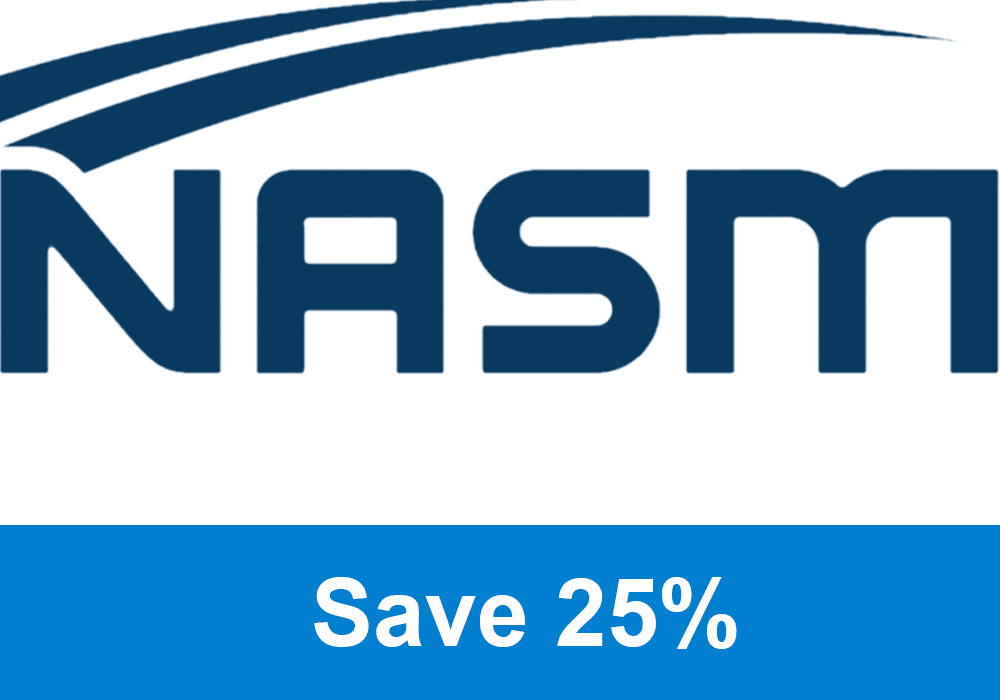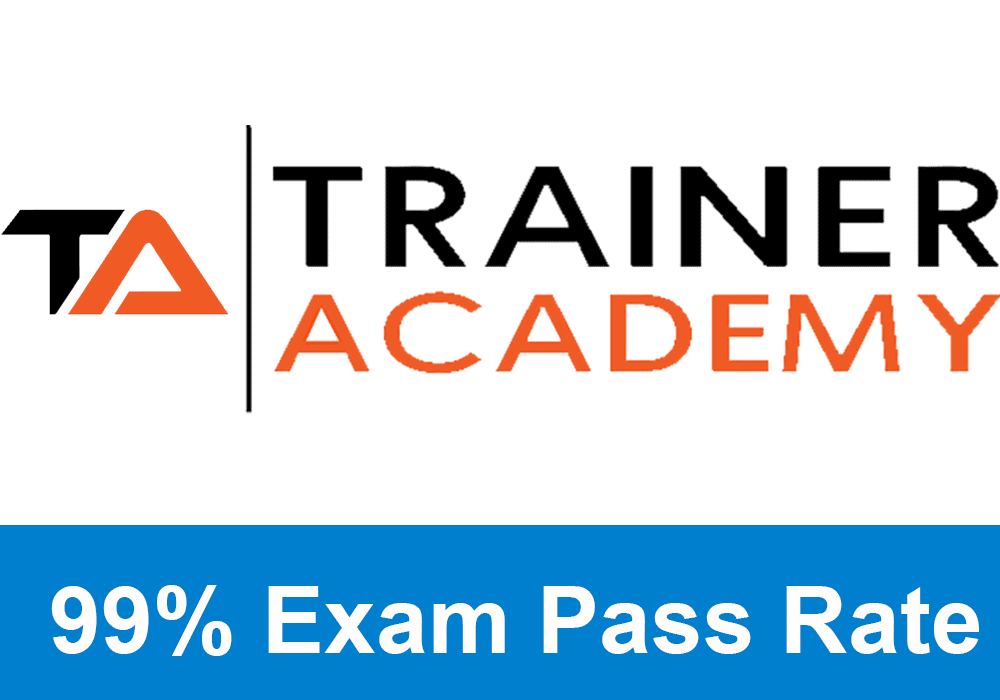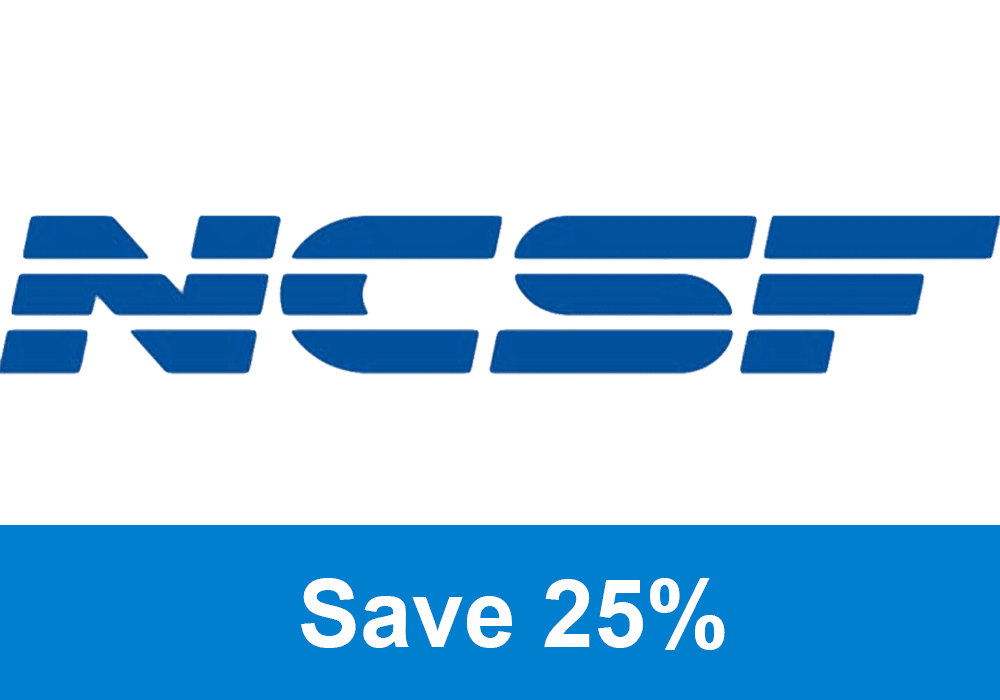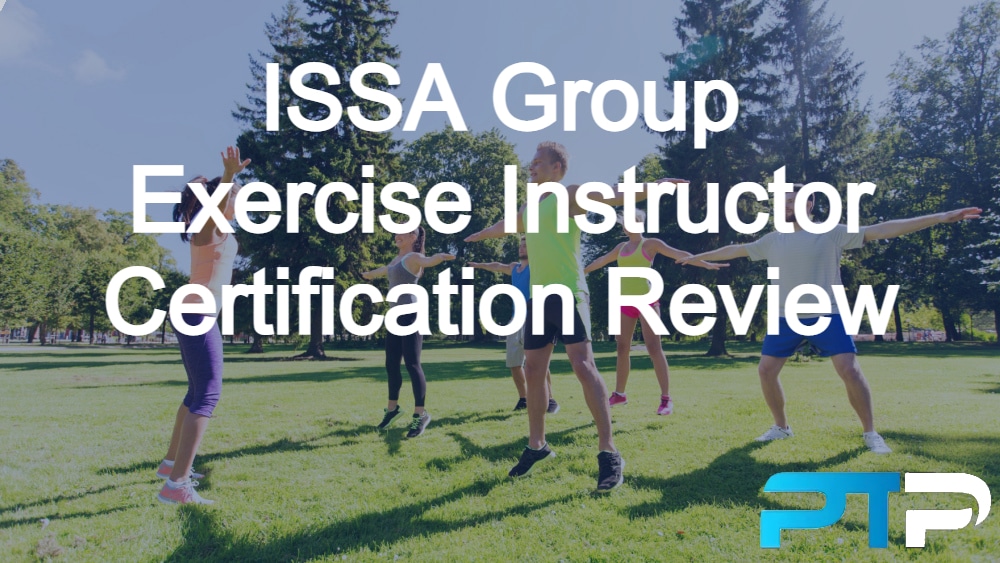![ISSA Strength & Conditioning Coach Certification Review ([year]) 14 issa strength and conditioning certification review. Tyler Read shows the ISSA strength and conditioning certification textbook.](https://www.ptpioneer.com/wp-content/uploads/2023/03/issa-strength-and-conditioning-certification-review-1024x768.jpeg)
This article sums up my experience studying for, taking, and passing the ISSA Strength and Conditioning Certification exam, including my knowledge as a fitness professional and strength and conditioning coach for over a decade.
I answer the following questions in this ISSA review:
- Is ISSA worth it?
- What are the costs of the ISSA exam and study materials?
- What information is covered in the ISSA Strength and Conditioning Certification?
- How does the ISSA certification compare to the other certs out there
- How hard is the ISSA Strength and Conditioning final exam?
- What are the pros and cons of the ISSA Strength and Conditioning Certification?
I’ve been a certified personal trainer and strength and conditioning coach for many years and my team of coaches at PT Pioneer has many strength and conditioning certifications, so we have a broad view of how these certs compare to each other and which certifications organizations like to see on a resume.
I also highly recommend that you take the quiz and find out which ISSA certification is best for your career goals.
Let’s get into it.
What is the ISSA Strength and Conditioning Certification?
![ISSA Strength & Conditioning Coach Certification Review ([year]) 15 What is the ISSA Strength and Conditioning Certification? ISSA SCC textbook](https://www.ptpioneer.com/wp-content/uploads/2023/03/what-is-the-issa-strength-and-conditioning-certification-1024x768.jpeg)
The ISSA Strength & Conditioning Certification aims to teach you how to help athletes build endurance, strength, power, and speed.
Key points covered in the ISSA Strength and Conditioning Certification include:
- How to apply the principles of metabolism, body mechanics, and anatomy to help athletes of any level reach their optimal performance
- Understand the athlete’s anatomy and how body mechanics and structure influence energy and performance levels
- Learn how to communicate exercise instruction and benefits to your clients
- Get the tools to develop personalized fitness programs intended to increase endurance, strength, power, and speed
- How to apply the principles of nutrition and supplementation as they relate to each individual athlete
- Learn to identify the strains of over-training and how to prevent injuries
- How to properly perform fitness assessments and monitor an athlete’s progress and growth
- Learn the fundamentals of sports psychology and how to mentally prepare athletes to overcome hurdles and perform to their highest ability
![ISSA Strength & Conditioning Coach Certification Review ([year]) 16 ISSA Strength and Conditioning Certification General Information](https://cdn.lovesavingsgroup.com/logos/issa.png)
ISSA Strength and Conditioning Certification General Information
- Exam cost: $639.24
- Study material cost: $53.27/month for 12 months
- Prerequisites: High School Diploma, CPR/AED
- Exam passing score: 75% on each section
- Exam pass rate: 90%
- Average completion time: 3-4 months
ISSA credibility and reputation
The International Sports Science Association (ISSA) has set a high standard for their certifications since the organization was formed in 1988 with the goal of fighting back against physical decline across the world.
The International Sports Sciences Association has also certified over 200,000 fitness professionals since its inception.
ISSA was the first organization to offer the top online certifications (through the Distance Education Accrediting Commission) and they now have the greatest number of NCCA accredited certifications of any organization.
The National Commission for Certifying Agencies (NCCA) is the highest standard that sets the bar in terms of quality when it comes to fitness certifications. While not all gyms and facilities require an NCCA-accredited certification, they always prefer one over a cert without the NCCA’s gold stamp of approval.
In my experience, ISSA is well respected among employers in the fitness industry. Aside from the ISSA SSC, the ISSA personal trainer certification is among the personal trainer certifications sought-after by gyms.
Is the ISSA Strength & Conditioning Certification worth it?
![ISSA Strength & Conditioning Coach Certification Review ([year]) 17 is the issa strength and conditioning certification worth it - Tyler Read considers whether the ISSA strength and conditioning coach is worth it for his training career](https://www.ptpioneer.com/wp-content/uploads/2023/03/is-the-issa-strength-and-conditioning-certification-worth-it-1024x768.jpeg)
The ISSA Strength and Conditioning certification is worth it, especially for those who are looking for multiple certifications because they provide a lot of value for the price you pay and their certs are top notch.
Using their BOGO deal, you can get two certifications for the price of one. I always recommend coaches and trainers look at both nutrition and training certifications together as it allows you to be one stop shop for athletes and have the authority to be able to discuss nutrition as well as training. Normally that would cost twice as much, but not with ISSA.
Make sure to double check their website because no good deal lasts forever.
- Can re-take the test for free
- Comprehensive easy-to-understand textbook
- Elite Trainer package offers the best value in the fitness industry
- Not as well known as NSCA CSCS
- Assessments and weightlifting coverage could be better
- More expensive by itself than other certs
Another aspect I like about ISSA is how easy it is to go through their certification process at home. Everything from the textbook to the study program, to the test and CPR/AED certification is all available online, unlike other organizations that make you pay extra for each of these things.
ISSA vs other top Strength & Conditioning certifications
There are many other certifications aimed at increasing athlete performance.
ISSA’s main strength and conditioning rival is the National Strength and Conditioning Association’s (NSCA) Certified Strength and Conditioning Specialist (CSCS).
The NSCA is the hardest certification test, but it’s also the most highly regarded and is exclusively recommended for those who want to be strength and conditioning coaches at collegiate and pro levels.
NASM also has a good option with their Performance Enhancement Specialist (NASM PES), but this isn’t a full certification so I won’t be comparing it to ISSA as much in this review. I mostly look at NSCA vs ISSA.
Who is the certification meant for?
The ISSA Strength and Conditioning Certification is meant for athletic coaches, and personal trainers who want to know the science of how to achieve optimal results with their clients.
It’s also a slightly less dense certification than the NSCA CSCS, which makes it more of an ideal candidate for coaches without a college degree in exercise science.
- Athletic coaches
- Personal Trainers (wanting to increase performance in clients)
- Athletes
- Trainers (who work with special populations)
ISSA Strength & Conditioning Certification cost and packages
![ISSA Strength & Conditioning Coach Certification Review ([year]) 18 issa strength and conditioning certification cost and packages](https://www.ptpioneer.com/wp-content/uploads/2023/03/issa-strength-and-conditioning-certification-cost-1024x768.jpeg)
The ISSA Strength and Conditioning Certification costs $639.24.
You can also pay in installments of $53.27 for 12 months.
ISSA simplifies the order process with all of its certifications by offering one package that includes everything.
I also recommend getting an ISSA personal trainer certification alongside your ISSA strength and conditioning coach. Furthermore, nutritional knowledge gives you another leg up for delivering results and making more money.
If you do go with the ISSA certification, you can take a look at the ISSA Elite Trainer Program, which gives you the certified personal trainer, ISSA nutrition, and ISSA strength and conditioning for just slightly more than each certification costs on its own.
You can check out the ISSA Elite Trainer directly on the ISSA website. If they are currently running the Elite Trainer Program, it is a tough deal to pass up.
ISSA Strength and Conditioning Certification content coverage
![ISSA Strength & Conditioning Coach Certification Review ([year]) 21 issa strength and conditioning certification table of contents](https://www.ptpioneer.com/wp-content/uploads/2023/03/issa-strength-and-conditioning-certification-table-of-contents-1024x768.jpeg)
The ISSA textbook is divided into 24 chapters:
Exclusive PTP CPT Offers |
||
|---|---|---|
Gold Standard Cert | Most Popular Cert | Best Study Materials |
A Good Option | A Good Option | Best CPT for you?  |
- Introduction to Strength and Conditioning
- Nervous System
- Muscular System
- Skeletal System and Joint Actions
- Cardio Respiratory and Support Systems
- Bioenergetics
- Biomechanics
- General Assessments
- Performance Assessments
- Principles of Program Design
- Flexibility
- Plyometric Exercises
- Core Exercises
- Lower-Body Exercises
- Upper-Body Exercises
- Power and Olympic-Style Weight Lifting
- Resistance Training Systems
- Applying Periodization
- Cardiorespiratory Programming
- Recovery and Injury Prevention
- Nutrition
- Supplementation
- Performance Psychology
- Professional Practice
Body Systems
This first section of the ISSA Strength and Conditioning Certification covers nervous, muscular, bone and joint structures along with areas on the support systems of the respiratory, endocrine, and digestive systems.
I really enjoy the chapter layout. ISSA always does a good job of explaining complicated scientific information in a way that’s visually pleasing and easy to understand in their textbooks.
The right hand side of each page includes keywords from the text highlighted in red, which makes it easy to thumb through the pages and refer to specific portions of the book.
The information in these chapters goes far more in depth than the ISSA personal training certification, and yet I’d say it’s just as easy to comprehend.
Certainly, the ISSA Strength and Conditioning book is much easier to go through than the NSCA CSCS textbook, which reads like a scientific journal.
When I was studying to take the NSCA Certified Strength and Conditioning Exam I remember having to pour through each chapter multiple times to fully synthesize the information.
That isn’t the case with the ISSA Strength & Conditioning certificate, although I would highly recommend taking detailed notes as you read.
Some of the information you learn in these first sections you may never use again as an athletic trainer:
For example, knowing which spheres of the brain process which body functions will only really be applicable if you are dealing with an athlete who had suffered a stroke, in which case they would have to go through medical intervention before even jumping on the athletic field.
However, it’s worth knowing all of this detail and every quality strength and conditioning certification teaches this level of scientific depth, including the ISSA Strength & Conditioning Certification.
One of the aspects of the Nervous System chapter I find useful is the innervation charts which are good to refer to if you suspect nerve damage in an athlete.
The Muscular System chapter contains a helpful insertion/origin/action chart I often refer back to when diagnosing muscle actions during movement. Surprisingly, I couldn’t find a similar chart or resource in the NSCA CSCS course, so ISSA definitely comes out on top here.
I also really appreciate the clean design of the ISSA visual graphics. For instance, in the Cardio Respiratory System chapter there’s an image showing the heart blood flow during systolic and diastolic events that illustrates the concept very clearly.
On the negative side, there isn’t too much depth to the Endocrine System content, so if you want more details on the hormones in the body, you may need to supplement this information with another course.
Bioenergetics and Biomechanics
The Bioenergetics chapter doesn’t go into as much detail in the ISSA Strength and Conditioning Certification as in the NSCA CSCS, but I’d say it’s plenty for most coaching applications.
NSCA certainly gives you more insight on bioenergetics as related to cardiovascular systems.
Assessments
The Assessments section of the ISSA Strength & Conditioning Certification is probably the weakest compared to other Strength and Conditioning programs.
While ISSA stresses the importance of assessments, there are only a few mentioned here: a basic postural assessment, gait assessment, squat and lunge, and only 2 cardiorespiratory assessments.
ISSA mentions the PAR-Q and pre-participation assessment but does not provide a copy so you can view them.
Also, ISSA includes performance tests in each domain, but in most cases just one, while the NSCA includes a minimum of 3 possible tests for power, agility, strength, endurance, etc. This gives you more data on your athletes.
ISSA does provide a competent level of information in the SCC. Of course, this can be easily supplemented with information available online.
For those interested, I’d recommend the Functional Movement Screen (FMS) as a good comprehensive movement screening tool to set standards with your athletes.
Program Design
The Program Design chapter of the ISSA Strength and Conditioning Certification does an excellent job of covering the essentials of program design. It describes the details of goal setting and exercise training principles.
Flexibility
The ISSA flexibility chapter is one of my favorites. It covers both stretching and recovery techniques like myofascial rolling.
I’ve found in working with athletes that foam rolling is an excellent way to improve performance and reduce injuries. This topic is not discussed at length in the NSCA CSCS, another glaring omission–although I believe this topic is included in the NSCA Tactical Strength Certification.
Anyway, here again the ISSA Strength and Conditioning Certification shines.
Both the lat/triceps foam rolling position and the IT band position I’ve used to great effect in my own practice as illustrated in this course.
Plyometrics
The Plyometric chapter competently described the essential of plyometric training. It gives some progressions, but I wish it had a little more detail regarding specific programming guidelines or options for exercises.
NSCA CSCS also has more examples of exercises than ISSA, but ISSA certainly provides enough exercises and detail to get the job done.
Resistance Training and Core Exercises
The Core Exercises chapter is a highlight of the ISSA Strength & Conditioning Certification.
This chapter includes a healthy dose of useful exercises not found in other strength and conditioning courses like single-leg planks, bird dogs, and hip bridges.
I especially like how the exercises are organized by planes of motion. All the sagittal exercises are in one location, and the transverse exercises in another, which makes it easy for coaches and trainers seeking to create balanced programming that includes motion in all planes.
Exclusive PTP CPT Offers |
||
|---|---|---|
Gold Standard Cert | Most Popular Cert | Best Study Materials |
A Good Option | A Good Option | Best CPT for you?  |
The chapters including Lower and Upper Body Exercises include a wide variety of strength training tools: barbell, dumbbell weights and some bodyweight calisthenic movements. ISSA does not mention too much about using plate-loaded or pin-loaded machines.
While learning how to use these machines is not challenging and resistance machines are not the biggest element of an athlete’s exercise programming, they do have their place. Overloading muscles using machines provides a safe alternative for some athletes. I wish these exercises were included in the ISSA Strength and Conditioning Certification textbook.
However, these exercises are available in ISSA’s online exercise library, so if you do decide to learn them the resources are available to you there.
Power and Olympic-Style Weight Lifting
I’m just going to say it: this chapter in the ISSA SCC needs more depth. It certainly covers basic techniques and tips in terms of how to produce power, things like triple-extension of the knees, hips, and ankles.
I like the instructions of how to perform a clean and jerk or a snatch, but the main issue is that there are no pictures showing the phases of the lifts.
There is a visual aid online in the exercise library of the hang clean, but it’s only shown briefly from one angle.
Periodization
On the other hand, the chapters regarding periodization and programming planning are really well written. ISSA includes copious examples of full-body program examples, training splits, and loading parameters in well organized charts to tracks goals and workouts.
I use the Two Full Body Workouts Per Week example for most of my in-season athletes I work with in order to accommodate sports practice along with strength and conditioning.
When choosing which type of periodization (undulating, linear, etc.) it’s always best to try multiple variations to see which works the best with different athletes and their competition schedules. The ISSA Strength and Conditioning Certification gives examples of all of these periodization types.
I definitely think these periodization chapters in the ISSA Strength and Conditioning Certification prepare you to work with most athletes. The ISSA Strength & Conditioning Certification is certainly on par with the NSCA CSCS. If you want even more detail I would recommend a book like Supertraining by Mel Cunningham Siff and Yuri Verkhoshansky.
Cardio Programming
ISSA takes a different approach towards cardiorespiratory programming than other certifications. Whereas the NSCA CSCS uses the Karvonen formula and percentage of max heart rate reserve, ISSA chooses the 180 Formula to find the Maximum Aerobic Heart Rate.
The 180 Formula is a much simpler, easier way to find heart rate and can be more practical for most purposes, but personally, I like using Target Heart Rate Reserve to find a range for my athletes.
Of course, both methods work well, and you may decide you prefer one or the other better so I recommend learning both.
Recovery
Something I really like is that ISSA includes a whole chapter on recovery in their Strength and Conditioning Certification. I find that this is the missing link that really takes my athletes to the next level.
Often the clients I work with are incredibly motivated to train but can overstress their system easily with all the work they’re doing.
ISSA includes info on different recovery modalities like massage, contrast therapy (one of my favorites), compression, and active recovery among others.
Nutrition and Supplementation
The Nutrition and Supplement chapters give a solid overview of the basics. While the ISSA Strength and Conditioning Certification mentions the main legal performance supplements (like creatine, proteins, etc.), ISSA does not specify proper or improper dosages besides the amount for beta-alanine.
I would think knowing the proper dosing for some of these supplements would be valuable although of course you can easily look this up online or in another textbook.
On the positive side, ISSA does mention a wide variety of supplements, including lesser known things like choline and MCT oil, which is great and exclusive to this certification.
There is very little mention of illegal performance aids, such as anabolic steroids or growth hormone. While coaches should not know how to administer such substances, I do think it’s warranted to include some info in a Strength and Conditioning Certification. These compounds are very prevalent in athletics.
ISSA includes good coverage of proper hydration. Understanding this fundamental piece of knowledge is key as a coach. I’ve used their water check-in method many times to great effect.
Performance Psychology
The Performance Psychology chapter of the ISSA Strength and Conditioning certification provides many excellent tools for an athletic coach. It describes growth mindset, sources of confidence and motivation, energy management, cueing skills, self-talk and attention mindset.
These areas give you opportunity to improve your athletes’ mental state.
One of the concepts I use a lot with my clients is the section on breathing control, which I’ve found is a quick and easy way to lower athletes anxiety and heighten athletic performance for your students.
There’s a quick guide to diaphragmatic breathing, which I think would be helpful for any fitness coach or even personal trainer to know to use.
Knowing how to breathe properly is an essential skill in exercise and life. I’ve encountered many clients who get stuck in a chest-focused shallow style of inhalation, which is terrible for athletic performance and overall health.
Professional Practice
The Professional Practice section of the ISSA Strength & Conditioning Certification contains information on the roles needed as a strength and conditioning coach.
Additionally, I like that ISSA includes a step-by-step breakdown on how to prepare for a job interview and sell your services as an aspiring coach. This sort of guidance is more in-depth than some other certifications out there.
You can’t make money as a strength and conditioning coach if no one hires you, so having a clear framework on how to get hired is a must for any trainers or fitness professionals starting their careers and businesses.
ISSA Strength & Conditioning exam prep and study materials
![ISSA Strength & Conditioning Coach Certification Review ([year]) 22 ISSA Strength & Conditioning exam prep and study materials - ISSA textbook open to chapter on ATP cycle.](https://www.ptpioneer.com/wp-content/uploads/2023/03/issa-strength-and-conditioning-exam-prep-study-1024x768.jpeg)
The ISSA Strength and Conditioning Certification comes with:
- Online Study Guide and Workbook
- Online and Home Study Exam
- Online Exercise Lab
- Online Student Forum
- Practice Exam and Section Quizzes
- Free Professional Website
- Unlimited Educational Support.
- Plus Bonus Support After Your Exam
You also get access to a PDF of the textbook, which is my personal favorite way to synthesize the information.
ISSA’s 12-week Guided Study course is included in all ISSA’s packages and takes you through the information, chapter-by-chapter with video aids that supplement the course material.
The program includes online lectures, quizzes, and exams that must be passed in order to receive the certification.
Each strength and conditioning quiz helps prepare you for the final exam.
ISSA’s exercise library covers all the exercises not seen in the textbook, but it’s not as comprehensive as NASM or NSCA’s video library. I do find the ISSA fitness library sufficient for putting together an effective training program and instructing technique.
ISSA Certification requirements
Unlike other S&C certifications, the ISSA Strength and Conditioning Certification simply requires you to have a CPR/AED certification, and be over 18.
This is different from other strength and conditioning program qualifications, which often require a college degree in an exercise science field.
Strength & Conditioning salary
The average salary for a strength and conditioning coach in the US is $46,542 per year. This is just a baseline. Most top level strength coaches make more. I’ve known experienced strength coaches at a high collegiate level often make more than $500,000 per year.
Taking the final ISSA Strength and Conditioning exam
![ISSA Strength & Conditioning Coach Certification Review ([year]) 23 Taking the final ISSA Strength and Conditioning exam - how hard is the ISSA SSC exam?](https://www.ptpioneer.com/wp-content/uploads/2023/03/issa-strength-and-conditioning-certification-exam-1024x768.jpeg)
ISSA exams in general have a 90% pass rate, but I’ve known multiple people who didn’t pass their ISSA Strength & Conditioning exam the first time. It’s much harder than any CPT.
The exam is open-book, but you still have to know the information. You do get unlimited retakes, which makes it a nice option for those with testing nerves.
In my case I did pass the first time, but I’ve passed other strength and conditioning certifications in the past and I spent a fair amount of time prepping for this exam.
It’s also nice that you can just take the exam online, although I would recommend picking the proctored NCCA approved exam option if you want to work as a strength and conditioning coach, which comes from ISSA’s partnership with the NCCPT.
ISSA Strength & Conditioning continuing education and recertification
All ISSA certifications require 2.0 CEUs (20 hours) every two years to re-certify.
Other ISSA offerings
ISSA has many courses and certifications that give you ISSA CEU credits:
- ISSA Certified Personal Trainer
- ISSA Group Exercise Instructor
- ISSA Nutritionist
- ISSA Corrective Exercise Specialist
These tend to be the best way to recertify as they will give you the credits to renew and also the skills to be able to coach other aspects of fitness.
From my experience in the industry, a strength and conditioning coach who also understands nutrition or corrective exercise, is much more of an asset to an employer or self-employed trainer. Additionally, more knowledge helps you collaborate with other coaches on a higher level.
The ISSA Personal Training Certification might be a good place to start.
ISSA Strength and Conditioning overall rating
![ISSA Strength & Conditioning Coach Certification Review ([year]) 24 ISSA Strength and Conditioning overall rating - ISSA SSC textbook on table](https://www.ptpioneer.com/wp-content/uploads/2023/03/issa-strength-and-conditioning-overall-rating-1024x768.jpeg)
ISSA Strength and Conditioning Certification
![ISSA Strength & Conditioning Coach Certification Review ([year]) 25 ISSA Strength & Conditioning Coach Certification Review ([year]) 7](https://www.ptpioneer.com/wp-content/uploads/2023/03/issa_strength_and_conditioning_certification_review-400x225.jpg)
Discover if the ISSA Strength and Conditioning certification is the right option for your coaching career. Complete ISSA strength and conditioning review.
Product Currency: USD
Product Price: 639.24
Product In-Stock: InStock
4.5
Pros
- Array
- Array
- Array
Cons
- Array
- Array
- Array
The ISSA Strength and Conditioning Certification gets a 9 out of 10 in terms of an overall rating. I think it’s a great first cert for anyone interested in learning about strength and conditioning for the first time.
Highlights of this program include the ISSA textbook itself, which is easy to understand and well put together. The ISSA Strength and Conditioning Certification includes quality information on programming and periodization, body systems, performance psychology, a really good chapter on core exercises, and recovery.
Places in which the ISSA Strength & Conditioning Certification falls short include the Olympic lifts, assessments, and cardio programming.
ISSA does a fine job with this cert and I would recommend it, but if you want the strength and conditioning certification with the best pedigree, you may want to look at the NSCA Certified Strength and Conditioning Specialist.
In some ways, ISSA actually does a better job than the NSCA, but it’s not as well known in the industry yet.
However, NSCA does require anyone taking their CSCS exam to have a college bachelor’s degree or higher, so if you do not fit that prerequisite, the ISSA Strength and Conditioning Certification is your best option.
ISSA Strength and Conditioning Certification FAQs
![ISSA Strength & Conditioning Coach Certification Review ([year]) 26 ISSA Strength & Conditioning Coach Certification Review ([year]) 8](https://www.ptpioneer.com/wp-content/uploads/2023/03/issa-strength-and-conditioning-faqs-1024x768.jpeg)
Is strength and conditioning a good career?
Becoming a strength and conditioning coach can be a good career for those who want to help athletes succeed in their given sport by using the tools of the weight room to improve their performance. It’s also a very rewarding career as you see your athletes make improvements.
Is there a demand for strength and conditioning coaches?
The fitness industry is a growing industry and the job market for fitness professionals is expected to grow by 13% over the next 5 years, which is higher than in most other jobs. Also, every year the popularity of newer sports increases, allowing you to coach a higher variety of athletes than in the past.
How do I start a career in strength and conditioning?
The first step is to get certified through a strength and conditioning certification such as the ISSA SCC. Some coach jobs may also require an exercise science degree. After that you may find a job as an assistant on the team to gain the practical in-field knowledge to become a full-time strength and conditioning coach.
What is ISSA strength and conditioning?
The ISSA Strength and Conditioning Certification is a credential from the International Sports Sciences Association that teaches you how to make athletes stronger, faster, more powerful, and fitter in order to perform their sport at a heightened level.
How hard is the strength and conditioning certification?
The ISSA Strength and Conditioning Certification is one of the harder certifications. It’s certainly harder than most personal trainer certs. However, because the final test can be retaken for free it’s much easier than the NSCA CSCS.
How long does it take to get certified in strength and conditioning?
It should take most people 3-4 months to study for and take the ISSA Strength and Conditioning certification. For those with a background in exercise science, it may only take 1-2 months.
What are the benefits of strength and conditioning?
Strength and conditioning exercises benefit anyone, not just athletes. These movements make you stronger, faster, more agile, give you more coordination and balance, and the opportunity to move and perform better in everyday life.

 Have a question?
Have a question? ![ISSA Strength & Conditioning Coach Certification Review ([year]) 19 ISSA Strength & Conditioning Coach Certification Review ([year]) 5](https://www.ptpioneer.com/wp-content/uploads/2023/02/ptp-quiz-desktop.jpeg)
![ISSA Strength & Conditioning Coach Certification Review ([year]) 20 ISSA Strength & Conditioning Coach Certification Review ([year]) 6](https://www.ptpioneer.com/wp-content/uploads/2023/02/ptp-quiz-mobile.jpeg)
![ISSA Bodybuilding Specialist Review ([year]) Update 27 ISSA Bodybuilding Specialist Certification - bodybuilding coach pressing overhead under coach supervision](https://www.ptpioneer.com/wp-content/uploads/2024/04/ISSA-Bodybuilding-Specialist-Certification.png)
![ISSA Corrective Exercise Specialist Certification Review ([year]) 28 ISSA Corrective Exercise Specialist Review](https://www.ptpioneer.com/wp-content/uploads/2023/02/issa_corrective_exercise_specialist_review.jpg)

![ISSA Exam Prep [year] - How to pass the ISSA Exam On Your First Try 31 ISSA Exam Prep](https://www.ptpioneer.com/wp-content/uploads/2022/12/ISSA-Exam-Prep-1.jpg)
![FREE ISSA Study Plan, Study Calendar + Blueprint [year] 32 ISSA Study Plan](https://www.ptpioneer.com/wp-content/uploads/2022/12/ISSA-Study-Plan.jpg)

Tyler Read
PTPioneer Editorial Integrity
All content published on PTPioneer is checked and reviewed extensively by our staff of experienced personal trainers, nutrition coaches, and other Fitness Experts. This is to make sure that the content you are reading is fact-checked for accuracy, contains up-to-date information, and is relevant. We only add trustworthy citations that you can find at the bottom of each article. You can read more about our editorial integrity here.